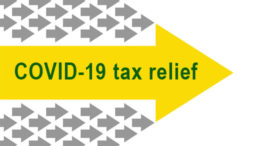Businesses across the country are being affected by the coronavirus (COVID-19). Fortunately, Congress recently passed a law that provides at least some relief. In a separate development, the IRS has issued guidance allowing taxpayers to defer any amount of federal income tax payments due on April 15, 2020, until July 15, 2020, without penalties or interest.
New law
On March 18, the Senate passed the House’s coronavirus bill, the Families First
Coronavirus Response Act. President Trump signed the bill that day. It
includes:
- Paid leave benefits to employees,
- Tax credits for employers and self-employed taxpayers, and
- FICA tax relief for employers.
Tax filing and payment extension
In Notice 2020-18, the IRS provides relief for taxpayers with a federal income tax payment due April 15, 2020. The due date for making federal income tax payments usually due April 15, 2020 is postponed to July 15, 2020.
Important: The IRS announced that the 2019 income tax filing deadline will be moved to July 15, 2020 from April 15, 2020, because of COVID-19.
Treasury Department Secretary Steven Mnuchin announced on Twitter, “we are moving Tax Day from April 15 to July 15. All taxpayers and businesses will have this additional time to file and make payments without interest or penalties.”
Previously, the U.S. Treasury Department and the IRS had announced that taxpayers could defer making income tax payments for 2019 and estimated income tax payments for 2020 due April 15 (up to certain amounts) until July 15, 2020. Later, the federal government stated that you also don’t have to file a return by April 15.
Of course, if you’re due a tax refund, you probably want to file as soon as possible so you can receive the refund money. And you can still get an automatic filing extension, to October 15, by filing IRS Form 4868. Contact us with any questions you have about filing your return.
Any amount can be deferred
In Notice 2020-18, the IRS stated: “There is no limitation on the amount of the payment that may be postponed.” (Previously, the IRS had announced dollar limits on the tax deferrals but then made a new announcement on March 21 that taxpayers can postpone payments “regardless of the amount owed.”)
In Notice 2020-18, the due date is postponed only for federal income tax payments for 2019 normally due on April 15, 2020 and federal estimated income tax payments (including estimated payments on self-employment income) due on April 15, 2020 for the 2020 tax year.
As of this writing, the IRS hasn’t provided a payment extension for the payment or deposit of other types of federal tax (including payroll taxes and excise taxes).
Contact us
This only outlines the basics of the federal tax relief available at the time this was written. New details are coming out daily. Be aware that many states have also announced tax relief related to COVID-19. And Congress is working on more legislation that will provide additional relief, including sending checks to people under a certain income threshold and providing relief to various industries and small businesses.
We’ll keep you updated. In the meantime, contact us with any questions you have about your situation.
© 2020 Covenant CPA

